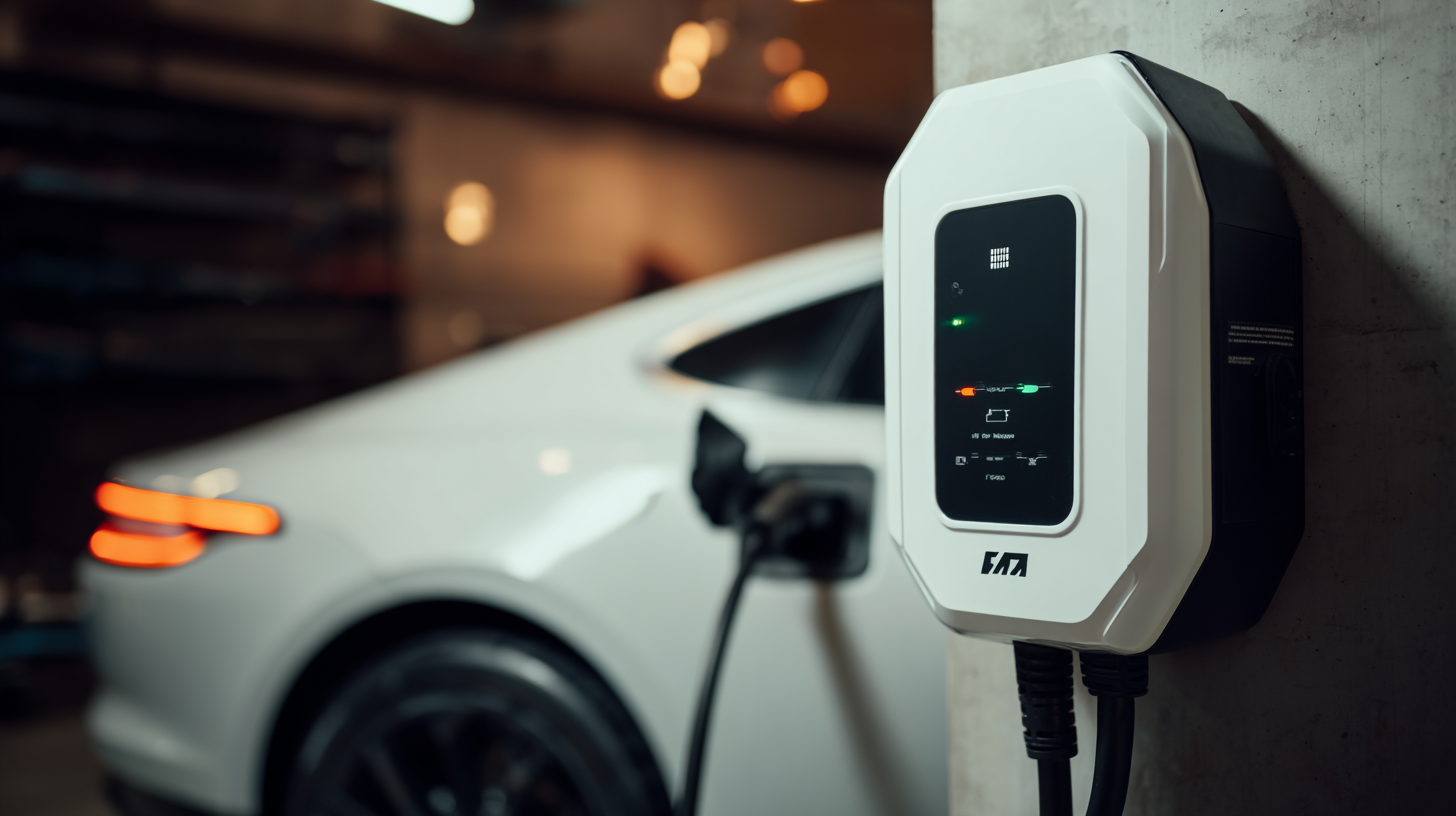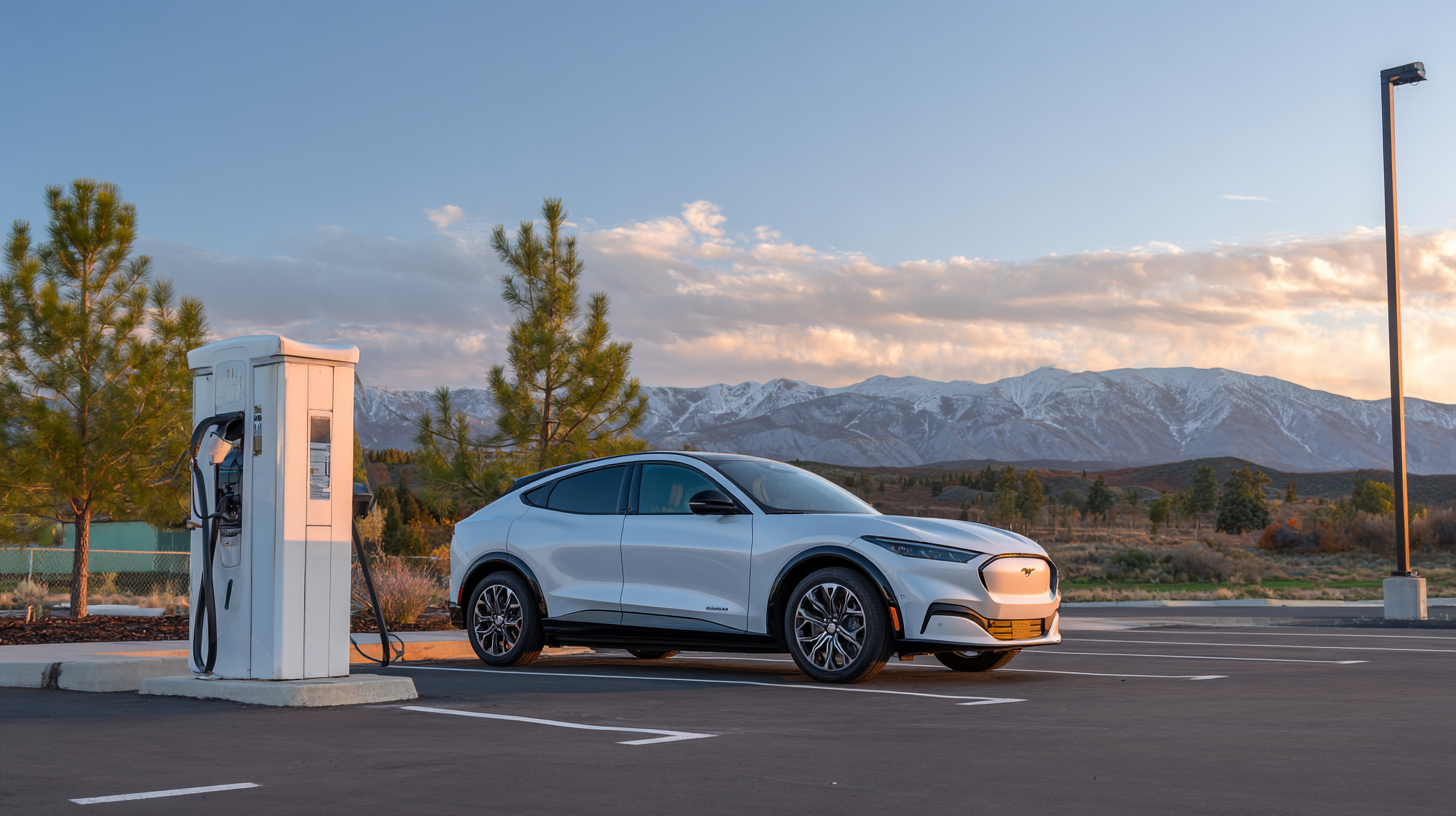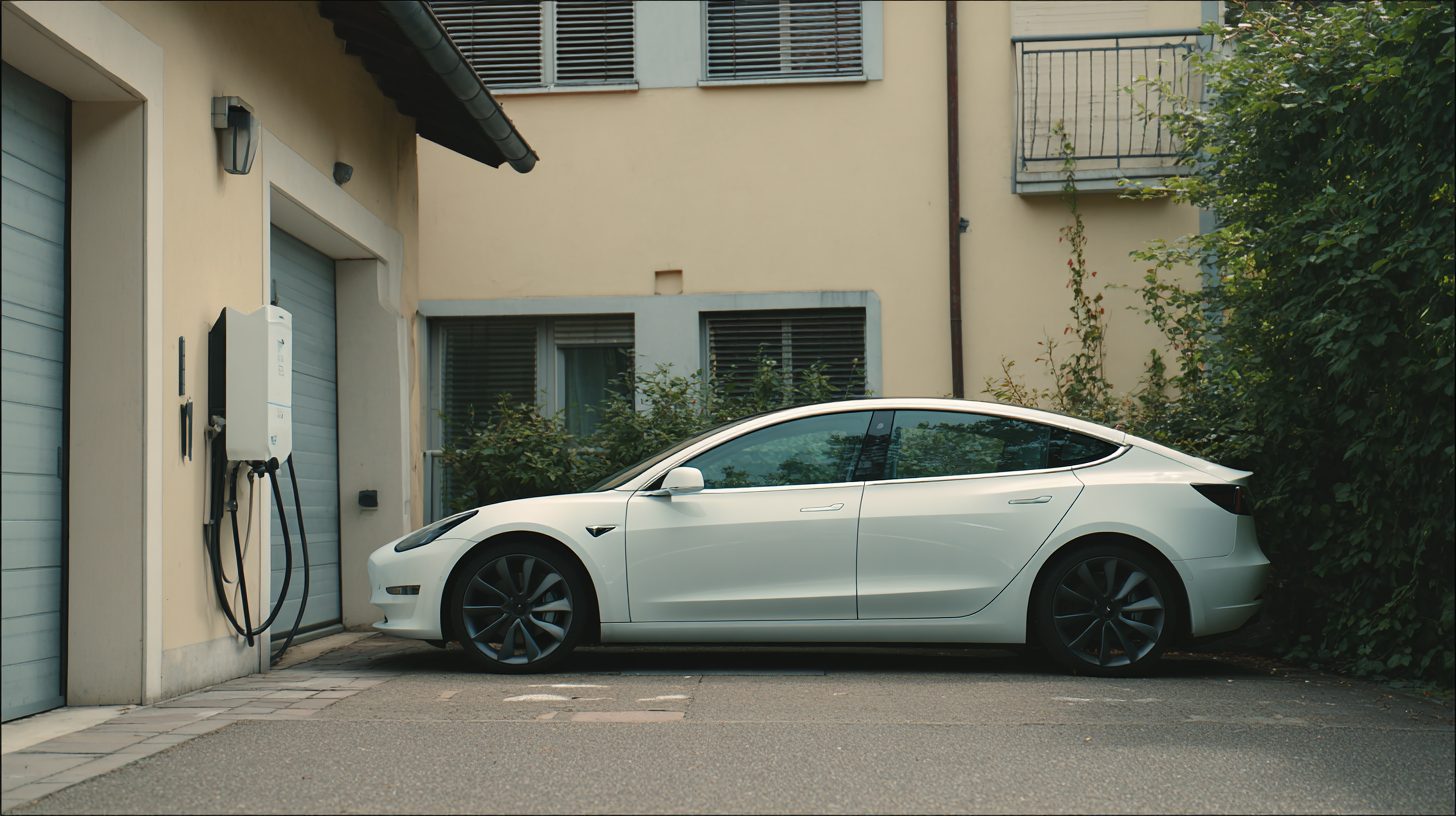Finding the Right Manufacturer for Your Best Ev Home Charger Through Comparison Techniques
In the rapidly evolving world of electric vehicles, the importance of selecting the right EV home charger cannot be overstated. With numerous manufacturers vying for your attention, it can be daunting to navigate the intricacies of their offerings. This blog aims to simplify the process by employing effective comparison techniques, ensuring that you find the best EV home charger tailored to your specific needs. Whether you prioritize charging speed, compatibility with your vehicle, or additional features, understanding the various types of chargers and their respective advantages will empower you to make an informed decision. Join us as we delve into the key factors to consider when evaluating manufacturers and highlight the essential elements that define an optimal EV home charger.

Identifying Key Features of High-Quality EV Home Chargers
When selecting the best EV home charger, understanding the key features that signify high quality is essential. According to a report by the International Energy Agency (IEA), the demand for electric vehicle (EV) chargers is projected to increase significantly, with a forecast of 145 million units installed globally by 2030. This growing trend necessitates an informed purchasing decision, emphasizing the importance of certain specifications in a reliable home charger.

One critical feature to consider is charging speed, measured in kilowatts (kW). High-quality EV chargers typically offer Level 2 charging capabilities, providing power levels of 7.2 kW to 22 kW, which allows for a full charge in just a few hours. Additionally, safety standards should not be overlooked; chargers certified by Underwriters Laboratories (UL) or other recognized organizations ensure that customers are protected from electrical hazards. Furthermore, a robust warranty, ideally five years or more, can be an indicator of a manufacturer's confidence in their product's longevity and performance. This combination of speed, safety certification, and warranty can significantly influence the overall charging experience for electric vehicle owners.
Evaluating Manufacturer Reputation and Customer Feedback
When searching for the ideal electric vehicle (EV) home charger manufacturer, evaluating their reputation and customer feedback is crucial. A reliable manufacturer should have a history of producing high-quality chargers and providing excellent customer service. Look for companies with positive reviews on various platforms, such as consumer forums and social media. This feedback can give you insights into the real-world performance of the chargers and how manufacturers handle issues.
Tips for evaluating manufacturer reputation include checking third-party review sites and industry certifications. Engaging with current users through online communities or local EV meetups can also provide valuable information on their experiences with different manufacturers. Additionally, consider the presence of a robust warranty policy and responsive customer support, which are indicators of a manufacturer that stands by its products.
Don't underestimate the power of customer feedback in shaping your decision. Pay attention to common themes in reviews—frequent complaints about installation difficulties or inadequate customer service can be red flags. Conversely, testimonials highlighting ease of use and reliability can reinforce your confidence in a manufacturer. Remember, finding the right EV home charger is as much about the product as it is about the company behind it.
Manufacturer Reputation and Customer Feedback for EV Home Chargers
Comparing Pricing and Warranty Options for EV Chargers
When it comes to selecting the best electric vehicle (EV) home charger, comparing pricing and warranty options is crucial for making an informed decision. Most manufacturers offer a range of models at various price points, but it’s essential to look beyond the initial cost.
Cheaper chargers may save you money upfront, but they could lack essential features, durability, or efficiency, ultimately costing more in the long run due to higher energy consumption or repairs.
Therefore, conducting thorough research and evaluating different pricing structures will help you find a charger that not only fits your budget but also meets your charging needs effectively.
Warranty options are just as significant as pricing when it comes to purchasing an EV charger. A good warranty can provide peace of mind, ensuring that you're covered in case of defects or failures.
Many manufacturers offer warranties that range from two to five years, while some premium chargers can come with extended coverage. It’s vital to read the terms and conditions carefully—some warranties cover parts while others include labor, which can significantly affect your overall costs if repairs are needed.
By carefully comparing both the pricing and warranty options of different manufacturers, you can ensure that you choose a reliable and economically savvy EV charger for your home.

Assessing Certification and Compliance Standards in Manufacturing
When selecting a manufacturer for your electric vehicle home charger, understanding certification and compliance standards becomes crucial. Manufacturers must adhere to industry-specific regulations that ensure their products meet safety and performance benchmarks. Key organizations, such as Underwriters Laboratories (UL) and the International Electrotechnical Commission (IEC), develop rigorous testing protocols that assess the reliability of electric chargers. By prioritizing manufacturers with products certified by these organizations, you increase your confidence in the quality and safety of your home EV charger.
Additionally, compliance with local and national regulations is essential. Each region may have specific requirements regarding installation, performance, and environmental impact that manufacturers must follow. Evaluating a manufacturer’s compliance history can reveal their commitment to not only meeting standards but also to innovation and improvement. When comparing options, consider asking for documentation that shows their adherence to these standards, as well as any awards or recognitions received for quality. This diligence will help you choose a manufacturer that ensures a safe and efficient charging experience for your electric vehicle.
Finding the Right Manufacturer for Your Best EV Home Charger Through Comparison Techniques - Assessing Certification and Compliance Standards in Manufacturing
| Manufacturer Location | Certification | Compliance Standards | Warranty Period | Lead Time for Production |
|---|---|---|---|---|
| USA | UL Listed | IEC 61851 | 5 Years | 6 Weeks |
| Germany | CE Certified | ISO 9001 | 3 Years | 8 Weeks |
| Japan | PSE Certified | JIS C 8614 | 4 Years | 5 Weeks |
| South Korea | K-mark Certified | KS C 8356 | 3 Years | 7 Weeks |
| China | CCC Certified | GB/T 18487 | 2 Years | 10 Weeks |
Exploring Technological Advancements in EV Charger Production
As the U.S. electric vehicle (EV) charger manufacturing market is projected to expand from $761.7 million in 2025 to an astounding $3,494.5 million by 2032, advancing at a CAGR of 24.3%, manufacturers are increasingly focusing on technological innovations. The rapid evolution in EV charger technology is driven by the need for faster, more efficient charging solutions that cater to the growing electric mobility demands. For instance, a recent comprehensive review highlighted significant advancements in fast charging technologies, which are crucial for maintaining the momentum of electric vehicle adoption.
To effectively navigate this competitive landscape, potential buyers should adopt comparison techniques when selecting their EV home chargers. Tips for making an informed decision include assessing charging speed, connectivity features, and compatibility with different EV models. Additionally, it's advisable to consider manufacturers who showcase a commitment to technological R&D, as seen with initiatives like the inauguration of state-of-the-art charging stations and partnerships with various industries for power quality solutions.
With emerging trends continuing to reshape the EV infrastructure, focusing on manufacturers that leverage these advancements could position consumers favorably in the evolving electric vehicle market. As industry players innovate and address persistent challenges, staying updated on the latest technologies will be imperative for anyone looking to invest in an efficient home charging solution.
